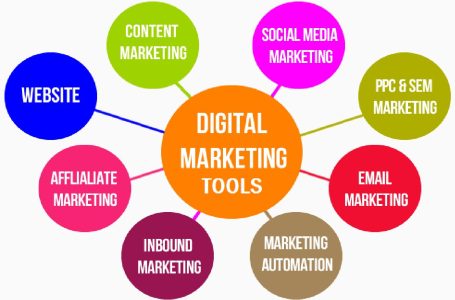The Unexpected Intersection of IT and Occupational Therapy
An IT program might not be the first thing that comes to mind when considering a career in occupational therapy. However, as technology continues to shape the healthcare landscape, professionals with interdisciplinary knowledge stand out. Integrating IT skills into occupational therapy can open up new career opportunities, enhance patient care, and streamline processes within healthcare settings.
The Growing Need for Tech-Savvy Occupational Therapists
Healthcare is becoming increasingly reliant on technology. From electronic health records (EHR) to telehealth services, digital solutions are reshaping how therapists interact with patients. Occupational therapists who understand IT concepts can work more efficiently, improve patient outcomes, and even contribute to innovative rehabilitation solutions.
IT program training offers hands-on experience with data management, cybersecurity, and software systems—skills that can be invaluable in modern therapy environments. Whether it’s analyzing patient data or implementing assistive technology, IT knowledge can elevate an occupational therapist’s capabilities.
Enhancing Patient Care Through Technology
Imagine working with a patient recovering from a stroke. Traditional therapy focuses on physical rehabilitation, but what if you could integrate digital tools to accelerate progress? IT knowledge enables therapists to leverage virtual reality (VR) and artificial intelligence (AI)-driven applications to create immersive rehabilitation experiences.
VR-based exercises allow patients to practice movements in a controlled, engaging environment. These applications track progress in real-time, giving therapists valuable insights into a patient’s recovery trajectory. With the right IT background, therapists can customize therapy sessions, making them more interactive and effective.
Digital Record-Keeping and Data Security in Therapy
Keeping patient records organized and secure is critical in healthcare. A background in IT ensures that therapists can navigate electronic health record systems efficiently, reducing administrative burdens and minimizing errors.
Additionally, understanding cybersecurity helps protect sensitive patient information. Cyber threats are a growing concern in healthcare, and therapists with IT knowledge can contribute to safeguarding data against breaches. By implementing secure practices, they not only protect patient privacy but also maintain compliance with healthcare regulations.
Expanding Career Opportunities with IT Skills
Occupational therapists with IT expertise have access to a broader range of career paths. Some alternative roles include:
- Healthcare IT Specialist – Assisting with software implementations and system maintenance in medical facilities.
- Assistive Technology Consultant – Developing and deploying technology to aid individuals with disabilities.
- Telehealth Coordinator – Managing remote therapy sessions and digital communication tools.
- Medical Software Trainer – Teaching healthcare professionals how to use digital tools effectively.
Employers value professionals who can bridge the gap between technology and patient care. By combining IT skills with therapy expertise, professionals can explore leadership roles or even enter research-driven fields that focus on technological advancements in rehabilitation.
Real-Life Example: A Therapist Who Bridged the Gap
Consider Sarah, an experienced occupational therapist who noticed inefficiencies in the clinic’s documentation system. Frustrated with the outdated process, she enrolled in an IT program to better understand software solutions. Within a year, she helped implement a more intuitive patient management system, reducing paperwork by 50% and improving workflow efficiency.
Her IT knowledge didn’t just make her job easier—it positioned her as a valuable asset to the clinic. She was later promoted to a leadership role, overseeing the integration of technology into therapy practices. Sarah’s story highlights how a technical skill set can enhance career progression and patient care simultaneously.
The Future of Occupational Therapy and Technology
As AI, machine learning, and automation continue to evolve, therapists who stay ahead of these trends will be in high demand. An IT program can provide the technical foundation necessary to adapt to these advancements and leverage them to improve patient care.
Whether it’s using AI-driven diagnostic tools, designing custom therapy apps, or implementing data analytics in rehabilitation, the future belongs to those who embrace interdisciplinary learning. By gaining IT expertise, occupational therapists can future-proof their careers and contribute to innovative solutions in healthcare.
Final Thoughts: Why IHow an IT Program Can Complement Your Career in Occupational TherapyT Knowledge is a Game-Changer
The healthcare industry is shifting towards a tech-driven approach, making it essential for professionals to adapt. By enrolling in an IT program, occupational therapists can gain the technical skills needed to enhance patient care, improve efficiency, and unlock new career opportunities.
Technology isn’t replacing therapy—it’s enhancing it. Those who recognize this shift and invest in expanding their knowledge will lead the next wave of healthcare innovation. If you’re an occupational therapist looking to stay ahead, consider how IT training can complement your expertise and take your career to the next level.





